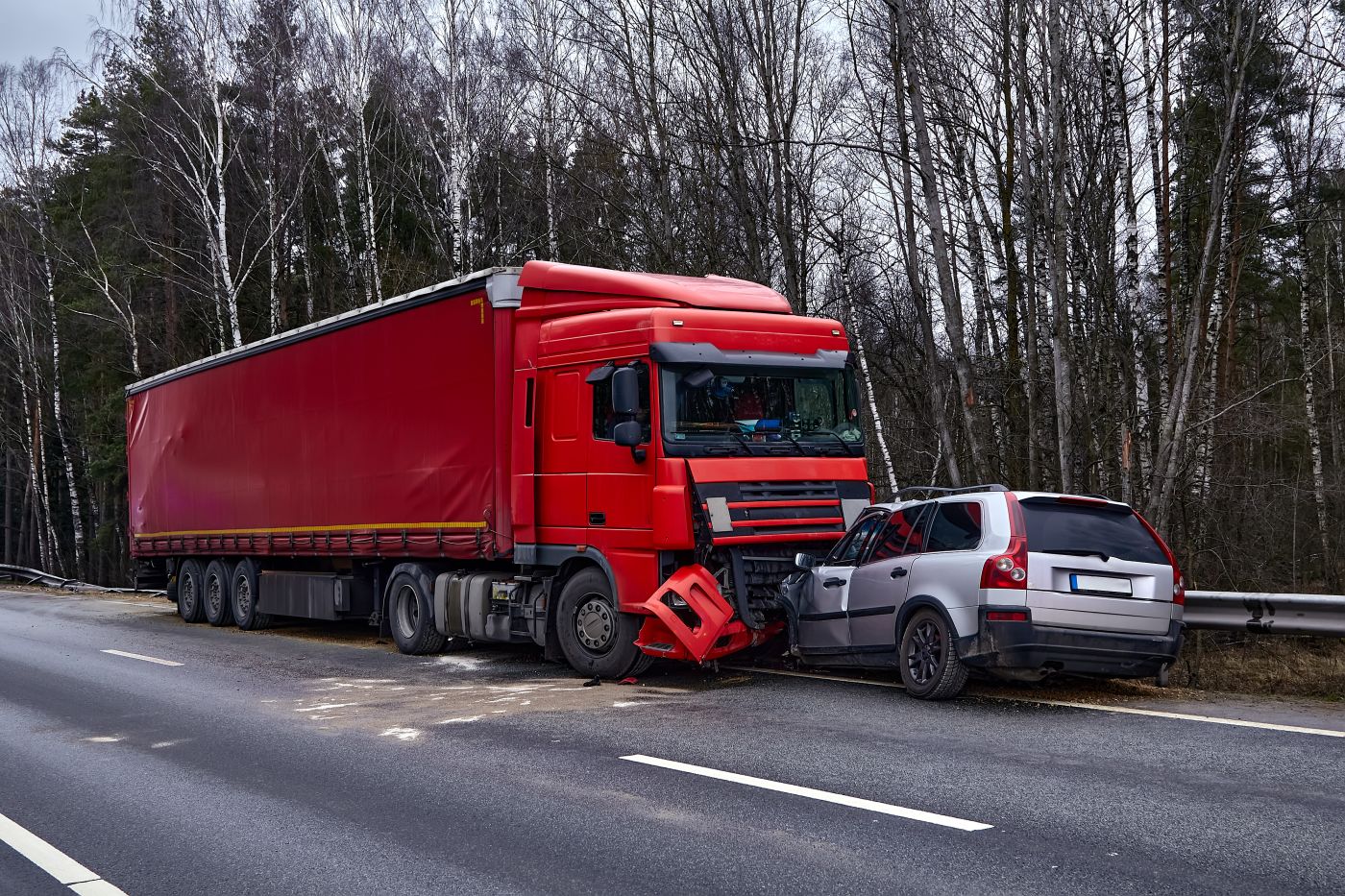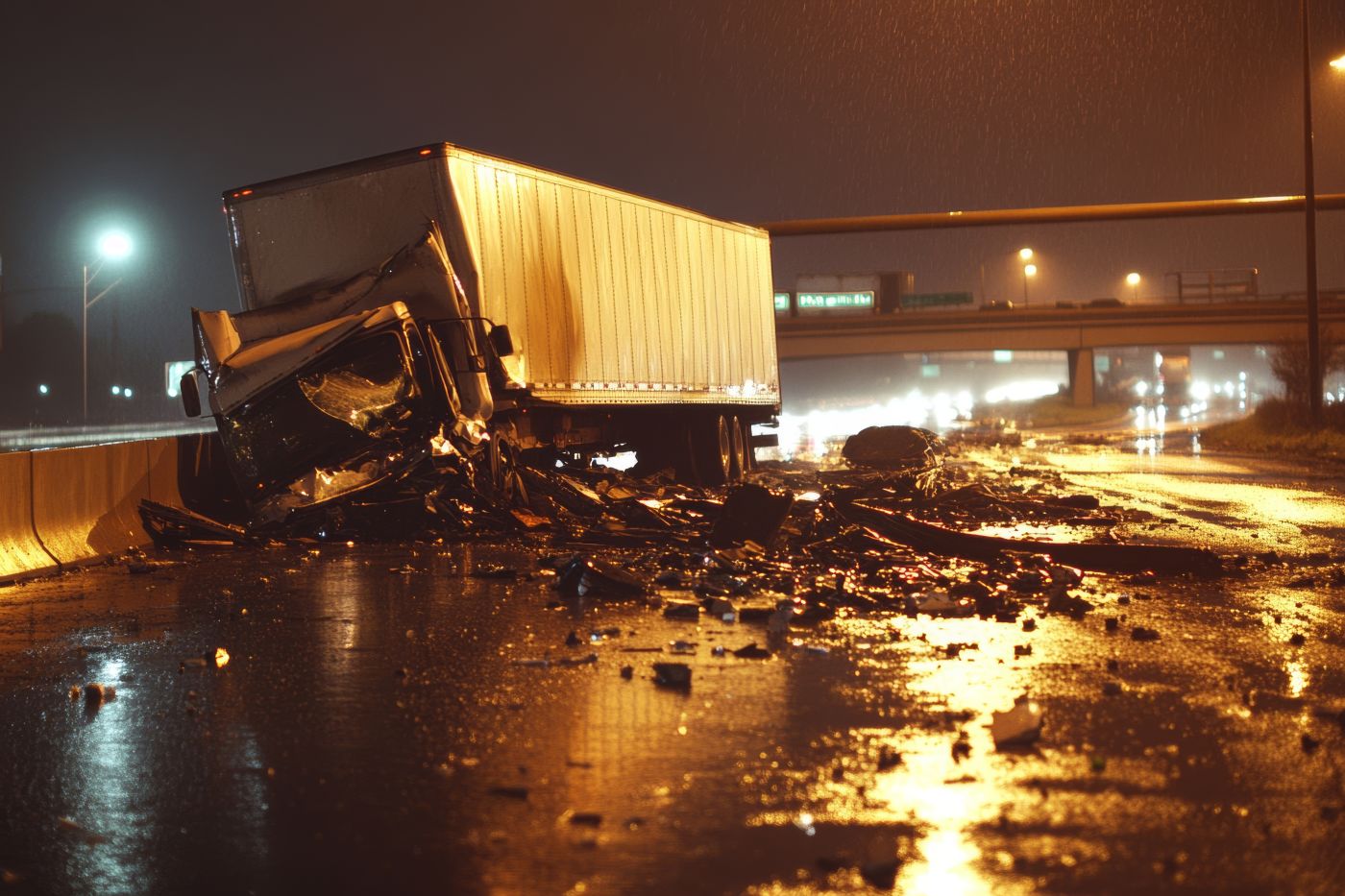
Federal trucking regulations establish safety requirements for commercial vehicles and their drivers. The Federal Motor Carrier Safety Administration (FMCSA) sets these rules to reduce the risk of accidents and promote road safety. When a truck accident occurs, these regulations can play a key role in determining liability and legal outcomes.
Trucking regulations cover various aspects of commercial transport, including driver qualifications, vehicle maintenance, hours of service, and cargo securement. Violations of these rules can influence how fault is assessed in an accident case, especially when safety standards are compromised.
At Harris & Hart Attorneys at Law in Kansas City, Missouri, we are committed to holding trucking companies and drivers accountable when violations of federal regulations lead to accidents. Our firm understands trucking laws and how they impact injury claims. Read on for more information about trucking regulations and their role in accident cases.
Driver Qualification and Training Requirements
Commercial truck drivers must meet specific standards before operating a vehicle. They need a commercial driver’s license (CDL) and must complete extensive training programs to make sure they understand how to operate large trucks safely and responsibly.
Medical qualifications are also part of driver certification. Truck drivers must pass thorough medical exams to verify that they’re fit for duty. If a driver involved in an accident lacks proper certification, it may impact liability in a personal injury claim. An unqualified driver is often a key factor in determining fault.
Additionally, ongoing training is necessary to maintain safe driving practices. Some trucking companies provide refresher courses, but others may neglect continuing education requirements.
If a driver lacks up-to-date training on regulations, safety procedures, or industry standards, this may significantly contribute to liability in an accident claim.
Hours of Service Rules and Fatigue-Related Accidents
The FMCSA limits how many hours a truck driver can operate a vehicle before taking a mandatory break. These hours of service (HOS) rules aim to reduce driver fatigue, a leading cause of truck accidents.
Key HOS regulations include:
A maximum of 11 driving hours within a 14-hour workday
At least 10 consecutive hours off duty between shifts
A required 30-minute break after driving for eight hours
If a trucking company or driver ignores these rules, it may contribute to negligence claims in an accident case. Electronic logging devices (ELDs) now track driving hours, making it easier to verify compliance and monitor any violations.
Driver fatigue can impair reaction time, judgment, and overall performance. If an accident occurs due to drowsy driving, an investigation may determine whether HOS violations contributed to the crash. Witness statements, dashcam footage, and ELD data may all play a role in proving negligence or recklessness.
Vehicle Maintenance and Inspection Standards
Trucking companies must keep their vehicles in safe operating condition. Regular inspections, repairs, and maintenance help prevent mechanical failures that can lead to accidents. The FMCSA mandates:
Pre-trip and post-trip inspections
Annual vehicle inspections
Immediate repairs for safety-related defects
Brake failures, tire blowouts, and steering issues can result from poor maintenance. If a crash occurs due to mechanical failure, inspection records may provide essential evidence of regulatory violations.
Failure to maintain vehicles properly can create hazardous road conditions. Mechanical defects such as worn-out brakes or underinflated tires can increase stopping distance and make it harder for a driver to maintain control.
When a trucking company neglects maintenance requirements, it can be held accountable in accident cases, particularly when the failure directly leads to a serious crash.
Cargo Securement and Overloading Issues
Improperly secured or overloaded cargo can increase the risk of rollovers and loss-of-control accidents. Federal regulations require cargo to be balanced, secured, and within weight limits to prevent dangerous accidents. Unsecured or improperly loaded cargo is a leading cause of truck accidents.
Shippers and trucking companies must follow these securement rules. If an accident occurs due to shifting or falling cargo, liability may extend to multiple parties, including the company that loaded the truck, further complicating the case.
Cargo violations can also affect braking and steering. Overloading may lead to excessive wear on brakes, increasing the likelihood of failure in high-pressure situations. Investigations often look at weight records, loading procedures, and securement methods to determine compliance with federal trucking regulations.
Alcohol and Drug Testing Requirements
Commercial truck drivers must comply with strict drug and alcohol testing regulations. Testing applies in several situations:
Pre-employment screening
Random testing
Post-accident testing
Reasonable suspicion testing
If a driver tests positive for prohibited substances, it may significantly affect liability in a personal injury claim. Employers who fail to enforce testing requirements may also share responsibility, particularly if prior drug abuse violations were ignored.
Substance abuse can impair coordination, reaction time, and decision-making. If an impaired driver causes an accident, testing records, prior violations, and even company negligence may be used as evidence. Employers who fail to conduct proper screenings or address known issues may also face serious legal consequences.
The Impact of Trucking Regulations in Liability Determinations
When a truck accident occurs, federal regulations help establish liability. Violations of FMCSA rules can indicate negligence, which may strengthen a plaintiff’s case and increase the chances of a favorable legal outcome.
For example, if a driver exceeded HOS limits and caused an accident due to fatigue, their employer may be responsible for allowing the violation to occur. Similarly, failure to maintain a vehicle can support claims against a trucking company, highlighting their role in the crash.
Liability can extend beyond the driver to include the trucking company, maintenance providers, cargo loaders, and even third-party contractors. Identifying all responsible parties is key to building a strong and comprehensive claim.
Evidence Collection and Accident Investigations
Gathering evidence is essential in truck accident cases. Key sources of evidence include:
Electronic logging device data
Vehicle maintenance records
Dashcam or surveillance footage
Cargo loading records
Attorneys often work with accident reconstruction specialists to analyse how trucking violations contributed to a crash. This process helps build a strong case for injured parties, providing detailed information about how and why the accident occurred.
In addition to official records, witness statements and physical evidence from the accident scene may provide further information. Skid marks, vehicle damage, and road conditions can all help determine how and why a crash occurred, allowing for a clearer understanding of liability.
How Violations Affect Compensation Claims
Trucking regulations influence compensation claims in several ways. If a regulatory violation contributed to an accident, it might support claims for damages such as medical expenses, lost income, and pain and suffering, providing much-needed financial relief.
Additionally, gross violations—such as falsifying driving logs or ignoring mandatory repairs—may lead to punitive damages. Courts may impose these damages to discourage reckless behavior in the trucking industry and prevent future accidents.
Compensation claims may also involve long-term medical costs, rehabilitation expenses, and lost earning capacity. Truck accident victims often face significant financial burdens, making a thorough investigation into regulatory violations essential for securing fair compensation and justice.
Impact of Regulatory Violations on Trucking Companies
Trucking companies found to be in violation of federal regulations can face substantial penalties, including fines, loss of operating authority, and increased insurance costs. These violations not only affect accident claims but can also tarnish the company's reputation, leading to long-term financial and operational consequences.
In some cases, criminal charges may be filed if a trucking company’s negligence leads to serious accidents, especially when it involves intentional misconduct, such as falsifying logs or failure to comply with maintenance regulations.
This can further strengthen the case for victims seeking compensation and highlight the serious nature of regulatory violations.
Contact Our Firm Today to Get Started
Understanding these regulations can be critical when pursuing a claim after a truck accident. Attorneys use these rules to assess fault and advocate for those affected by trucking-related injuries. Our attorneys serve clients in Overland Park and across Kansas and Missouri. Contact Harris & Hart Attorneys at Law today if you’re looking for experienced trucking regulations lawyers today.



